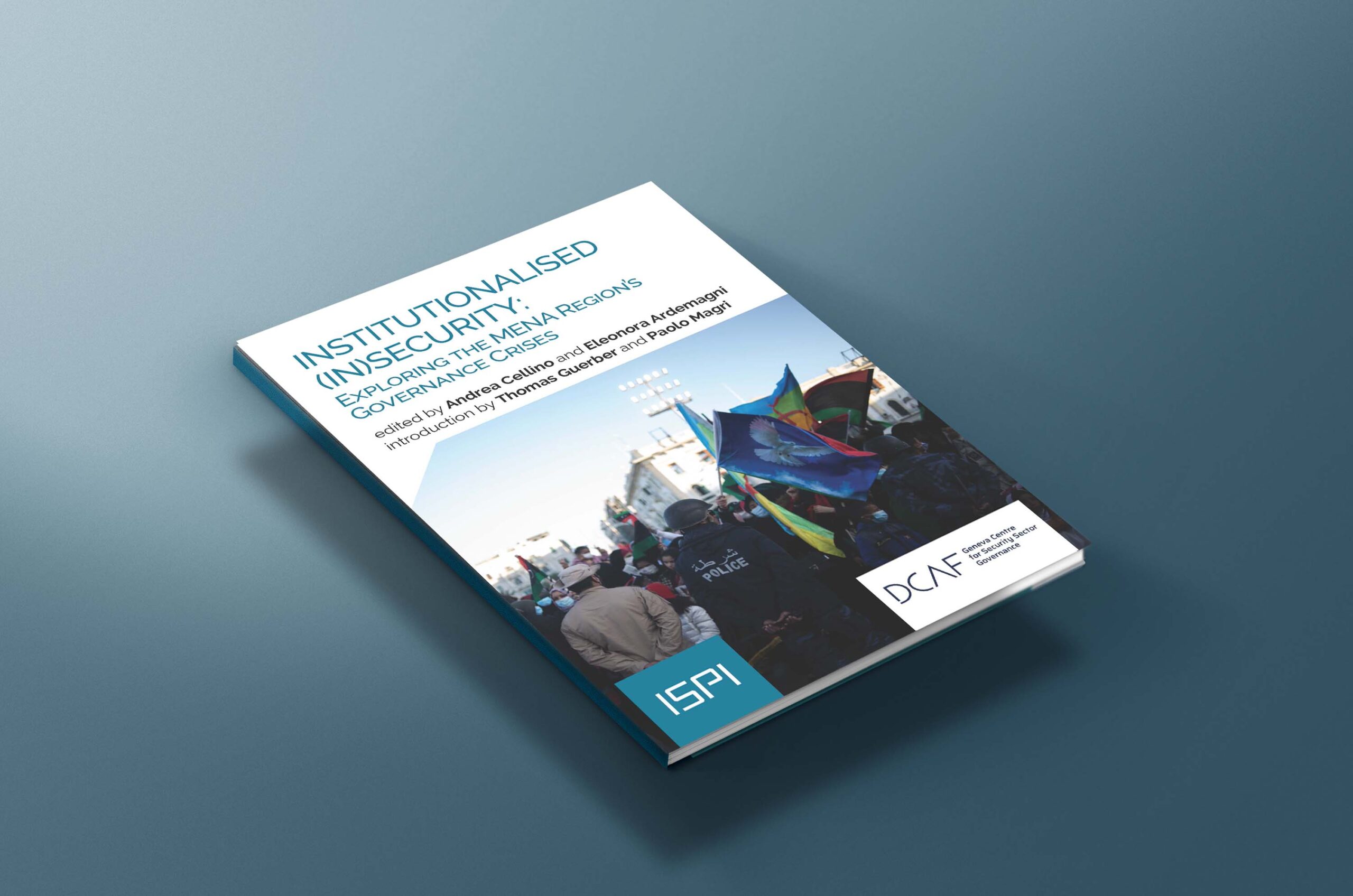Institutionalised (In)Security: Exploring the MENA Region’s Governance Crises
After a decade of popular uprisings and civil wars, the Middle East and North Africa (MENA) region is experiencing a deep governance crisis. The transformation, weakening or even the collapse of state institutions has changed the security framework, with direct implications for processes of Security Sector Governance and Reform (SSG/R).This report, produced in collaboration between ISPI and

 After a decade of popular uprisings and civil wars, the Middle East and North Africa (MENA) region is experiencing a deep governance crisis. The transformation, weakening or even the collapse of state institutions has changed the security framework, with direct implications for processes of Security Sector Governance and Reform (SSG/R).This report, produced in collaboration between ISPI and DCAF, explores multiple governance crises in the MENA region, providing case studies on Libya, Iraq, Tunisia, and Yemen. How can we effectively bring about meaningful SSG/R in hybrid security orders? In which way is “institutionalised insecurity” challenging traditional patterns of governance in vulnerable settings?
After a decade of popular uprisings and civil wars, the Middle East and North Africa (MENA) region is experiencing a deep governance crisis. The transformation, weakening or even the collapse of state institutions has changed the security framework, with direct implications for processes of Security Sector Governance and Reform (SSG/R).This report, produced in collaboration between ISPI and DCAF, explores multiple governance crises in the MENA region, providing case studies on Libya, Iraq, Tunisia, and Yemen. How can we effectively bring about meaningful SSG/R in hybrid security orders? In which way is “institutionalised insecurity” challenging traditional patterns of governance in vulnerable settings?
This Report is published in collaboration with Geneva Centre for Security Sector Governance.
TABLE OF CONTENTS
Introduction,
Thomas Guerber (Director, DCAF), Paolo Magri (Executive Vice President, ISPI)
1. Surrogate Governance: The Impact of Institutional Weakening on Security Sector Governance,
Emadeddin Badi, Roberta Maggi (Geneva Centre for Security Governance – DCAF)
2. Reassessing the SSG/R Landscapein Yemen: Post-Hybridity and Non-Western Players,
Eleonora Ardemagni (ISPI)
3. Peace-building & Accountabilityin Hybrid Security Orders,
Ranj Alaaldin (Brookings Institution)
4. Institutional Actors: Security Governance and the Role of Politics in Libya,
Jacqueline Stomski (Carnegie Endowment for International Peace)
5. Inclusivity and Empowerment in Tunisia’s Security Sector Reform,
Hamza Mighri (Fulbright Scholar)
Conclusions and Policy Recommendations,
Andrea Cellino (Geneva Centre for Security Governance – DCAF), Eleonora Ardemagni (ISPI)

